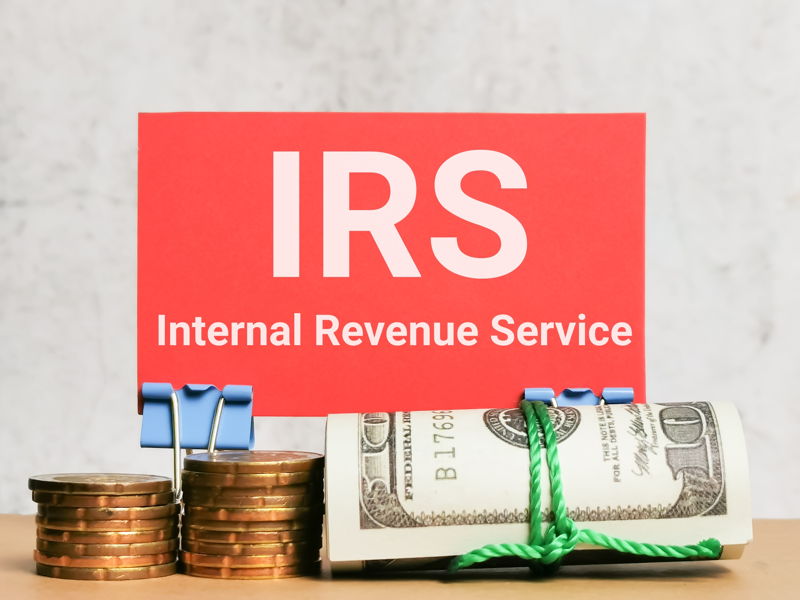Exploring the Time Limits: Statute of Limitations on IRS Collections
The statute of limitations on IRS collections is a law that limits the amount of time the IRS has to collect unpaid taxes. This means that after a certain amount of time, the IRS is usually prohibited from collecting the debt. However, there are some exceptions to this rule, and you’ll know them in detail in a while. Read ahead and find out all about the Statute of Limitations in one place!
What Constitutes the Statute of Limitations for the IRS?
The IRS has a rule called the “statute of limitations.” Think of it as a countdown clock. For the IRS, this clock lasts for 10 years, starting from the day they deci
de you owe them money. This rule is often known as the “10-year IRS statute of limitations.”
The statute of limitations is a law that sets a time limit on how long the IRS can assess taxes or collect taxes you owe. The specific statute of limitations that applies to a taxpayer depends on the type of tax and the circumstances.
Now, why does this matter? It’s because, after this 10-year period, the IRS usuall
y can’t ask you for the money anymore. However, it’s essential to know there are exceptions. Certain actions can make this 10-year clock stop and start again. For instance, if you file for a break because you can’t pay or if you go into bankruptcy, the clock might pause.
Here are the different types of statute of limitations for the IRS:
- Assessment statute of limitations: This is the time limit for the IRS to assess taxes that are owed. The general assessment statute of limitations is three years from the due date of the tax return or the date the return was filed, whichever is later. However, there are some exceptions to this rule, such as for fraudulent returns or for returns that are filed late.
- Collection statute of limitations: This is the time limit for the IRS to collect taxes that are owed. The general collection statute of limitations is ten years from the date the tax is assessed. However, there are some exceptions to this rule, such as for taxes that are subject to a levy.
- Refund statute of limitations: This is the time limit for the IRS to issue a refund to a taxpayer. The general refund statute of limitations is three years from the date the tax return was filed. However, there are some exceptions to this rule, such as for returns that are filed late.
What is the Timeframe for the IRS to Collect past-due taxes?
After filing taxes how long do I have to pay if I owe something? Once the IRS checks and sees you owe money, they’ll send you a bill. This bill will tell you how much you owe and when to pay it. The IRS has 10 years to collect past-due taxes from you. This is called the collection statute of limitations. The clock starts ticking on the day that your tax return is due, or the day that you actually file your return, whichever is later.
If you don’t pay by that date, the IRS will start trying harder to get the money from you. They might take some money directly from your wages or even claim some of your property. Here are some other things to keep in mind about th
e collection statute of limitations:
- The IRS can still collect taxes that are past the collection statute of limitations if you agree to pay them.
- The IRS can still collect taxes that are past the collection statute of limitations if you file a new tax return and claim a refund.
- The IRS can still collect taxes that are past the collection statute of limitations if you receive a gift or inheritance.
Is the IRS Permitted to Reach Farther Back than a Decade?
Can a debt be collected after 10 years? When we talk about the IRS, the answer is mostly no. That 10-year countdown (the statute of limitations) is like a protective wall for taxpayers. However, the IRS can reach farther back than a decade to collect taxes in certain circumstances.
The IRS’s collection statute of limitations is generally 10 years from the date the tax is assessed. However, there are a few exceptions to this rule:
- Fraud: If the IRS believes that you filed a fraudulent tax return, the collection statute of limitations is never barred.
- Taxpayer leaves the country: If you leave the United States and become a resident of another country, the collection statute of limitations is suspended until you return to the United States.
- Taxpayer files for bankruptcy: If you file for bankruptcy, the collection statute of limitations is suspended until your bankruptcy case is closed.
- IRS Levy: If the IRS has already levied your property, the collection statute of limitations is extended to 12 years.
- Installment agreement: If you have an installment agreement with the IRS, the collection statute of limitations is extended to 20 years.
If you are facing a tax debt, it is important to speak with a tax professional as soon as possible. They can help you assess your options and develop a plan to pay your taxes.
What Does the IRS Guide Say About the Expiration of Collection Statute?
The IRS operates with a timeline when it comes to collecting taxes owed. This timeline is called the Collection Statute Expiration Date (CSED). Simply put, it’s a time limit, typically 10 years, within which the IRS can collect taxes and levies.
There are certain events that can extend or suspend this timeline. For instance, if you filed for bankruptcy or applied for an offer in compromise, the clock stops ticking for a while.
But, do I owe the IRS back taxes?. It’s crucial to understand this concept because, after the CSED, the IRS cannot legally collect the tax from you.
For example, if a taxpayer gets an installment agreement or if there’s a significant delay like the taxpayer filing for bankruptcy, the CSED may be extended. Equally, submitting an application for an offer in compromise or being out of the country for an extended period can also push a pause on this 10-year countdown.
Why is this important for you? Once this time limit expires, the IRS loses its legal right to collect any owed taxes from that specific period. But, be informed and ensure you’re not caught off-guard during this time frame.
To What Extent Can the IRS Initiate Audits Covering Previous Years?
It is true that IRS audits can be scary. When you’re considering “filing back taxes with the IRS“, it’s good to know all about the timeframe.
The IRS has a three-year window from the date you filed your return to audit it. This means that if you filed your 2023 tax return on April 15, 2024, the IRS can audit it until April 15, 2027. However, there are a few exceptions to this rule.
Substantial underreporting of Income If the IRS suspects that you have substantially underreported your income, they can audit you for up to six years. This is defined as underreporting more than 25% of your gross income.
Fraud If the IRS believes that you have committed fraud on your tax return, they can audit you for any amount of time.
Unfiled Tax Returns The IRS can audit you for any unfiled tax return, regardless of how old it is.
If you are audited, the IRS will send you a letter notifying you of the audit. The letter will also tell you what documents you need to provide. You should cooperate with the audit and provide all of the requested documents. If you disagree with the IRS’s findings, you can appeal the audit.
How Many Years Back Can the IRS Investigate Unfiled Tax Returns?
Unfiled tax returns are a different ballgame. While the IRS typically reviews the past six years of returns, there’s no actual time limit for them to investigate when a return hasn’t been filed. The more pressing concern is that penalties and interest on the dues can accumulate, turning a small debt into a more significant burden. If you think you might be eligible for IRS back taxes forgiveness, it’s essential first to get those unfiled returns in. It clears the slate and sets the stage for potential negotiations about the amounts owed.
There are a few reasons why the IRS might investigate unfiled tax returns. One reason is that they may suspect that you have income that you have not reported. Another reason is that they may believe that you have claimed deductions or credits that you are not entitled to.
If the IRS investigates an unfiled tax return, they will send you a letter requesting that you file the return. If you do not file the return, the IRS may take further action, such as sending you a bill for the taxes that you owe or garnishing your wages.
Here are some tips to help you avoid an IRS investigation of unfiled tax returns:
- File all of your tax returns on time and accurately.
- Keep good records of your income and expenses.
- If you are unable to file a tax return on time, contact the IRS as soon as possible.
How Long Should Tax Returns Be Retained?
While the IRS collections statute of limitations sets a decade for the collection of tax debts, the rule for retaining tax returns is a bit different. It’s generally recommended that individuals keep their tax returns for a minimum of three years.
The IRS recommends that individuals keep their tax returns for a minimum of 3 years. This is the amount of time the IRS has to audit a return or when taxpayers can amend a return to claim a refund. However, if you have unreported income that is more than 25% of your gross income, you should keep your tax records for 6 years.
Some tax professionals even recommend keeping tax documents for 7 years or more. For utmost safety, and in case of any unforeseen complexities, some tax professionals even advise keeping tax documents for seven years or more.
What are the Conclusions Drawn from the IRS Collection Statute of Limitations?
The IRS collection statute of limitations is a vital aspect of the taxation system, It strikes a balance between taxpayers’ rights and the IRS’s responsibility to collect due amounts. Key takeaways from the statute include:
- The IRS generally has ten years to collect tax debts, starting from the date of assessment.
- Certain actions can extend or toll the IRS collection process timeline, like filing for bankruptcy.
- Understanding the IRS collections statute of limitations can empower taxpayers, making them aware of their rights and responsibilities.

Final Thoughts
Here are some additional things to keep in mind about the statute of limitations on IRS collections:
- The statute of limitations begins to run from the date the tax is assessed.
- The statute of limitations can be extended or tolled in certain circumstances, such as if the taxpayer files for bankruptcy or leaves the country. If the IRS is unable to collect a debt within the statute of limitations, the taxpayer is generally no longer liable for the debt.
- By understanding the statute of limitations on IRS collections, you can be better prepared to manage your financial obligations.





